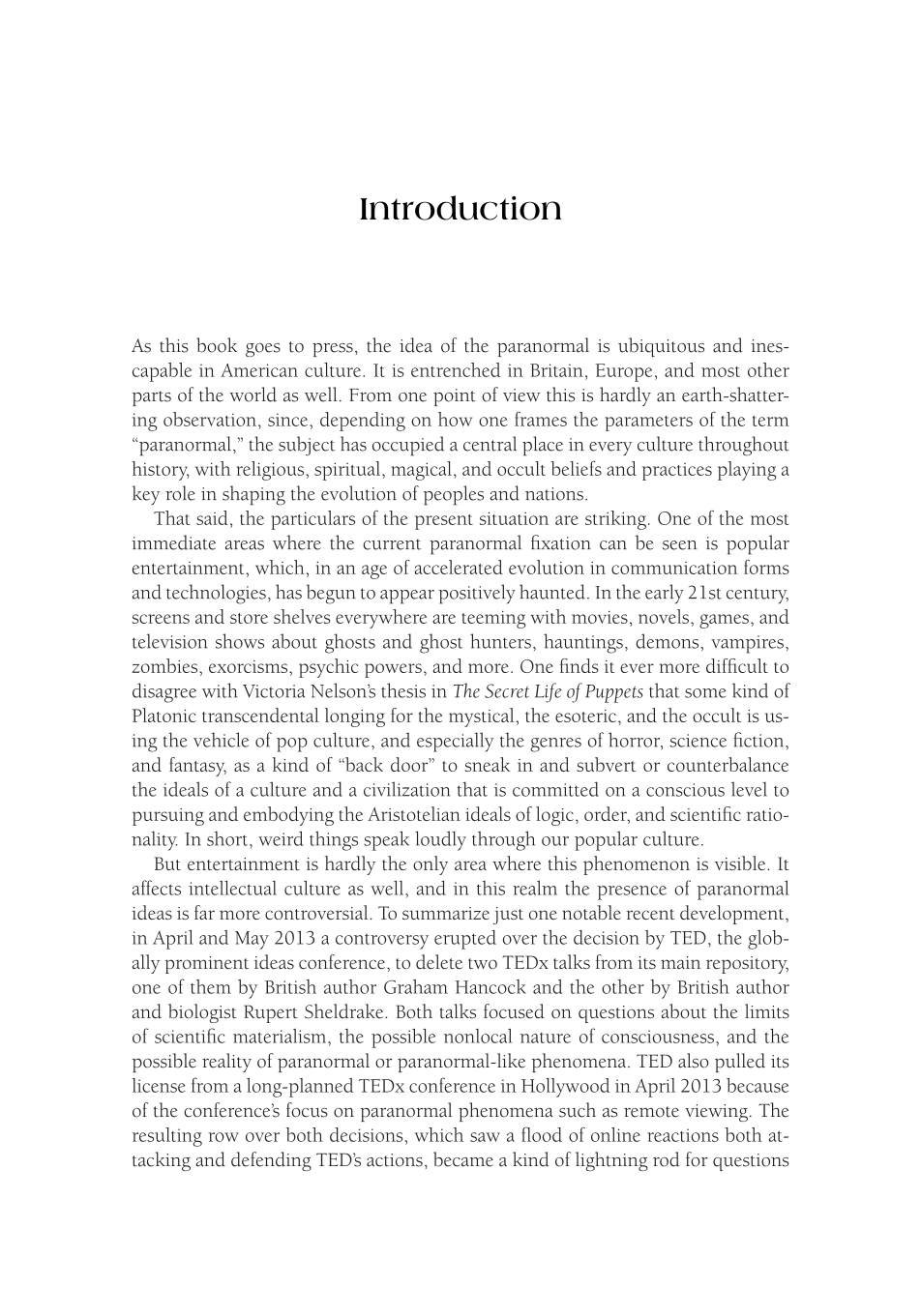Introduction
As this book goes to press, the idea of the paranormal is ubiquitous and ines-
capable in American culture. It is entrenched in Britain, Europe, and most other
parts of the world as well. From one point of view this is hardly an earth-shatter-
ing observation, since, depending on how one frames the parameters of the term
“paranormal,” the subject has occupied a central place in every culture throughout
history, with religious, spiritual, magical, and occult beliefs and practices playing a
key role in shaping the evolution of peoples and nations.
That said, the particulars of the present situation are striking. One of the most
immediate areas where the current paranormal fixation can be seen is popular
entertainment, which, in an age of accelerated evolution in communication forms
and technologies, has begun to appear positively haunted. In the early 21st century,
screens and store shelves everywhere are teeming with movies, novels, games, and
television shows about ghosts and ghost hunters, hauntings, demons, vampires,
zombies, exorcisms, psychic powers, and more. One finds it ever more difficult to
disagree with Victoria Nelson’s thesis in The Secret Life of Puppets that some kind of
Platonic transcendental longing for the mystical, the esoteric, and the occult is us-
ing the vehicle of pop culture, and especially the genres of horror, science fiction,
and fantasy, as a kind of “back door” to sneak in and subvert or counterbalance
the ideals of a culture and a civilization that is committed on a conscious level to
pursuing and embodying the Aristotelian ideals of logic, order, and scientific ratio-
nality. In short, weird things speak loudly through our popular culture.
But entertainment is hardly the only area where this phenomenon is visible. It
affects intellectual culture as well, and in this realm the presence of paranormal
ideas is far more controversial. To summarize just one notable recent development,
in April and May 2013 a controversy erupted over the decision by TED, the glob-
ally prominent ideas conference, to delete two TEDx talks from its main repository,
one of them by British author Graham Hancock and the other by British author
and biologist Rupert Sheldrake. Both talks focused on questions about the limits
of scientific materialism, the possible nonlocal nature of consciousness, and the
possible reality of paranormal or paranormal-like phenomena. TED also pulled its
license from a long-planned TEDx conference in Hollywood in April 2013 because
of the conference’s focus on paranormal phenomena such as remote viewing. The
resulting row over both decisions, which saw a flood of online reactions both at-
tacking and defending TED’s actions, became a kind of lightning rod for questions








































































































































































































































































































































































































































































